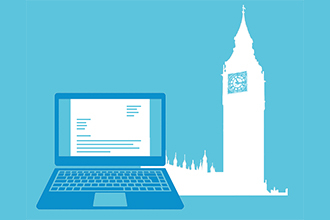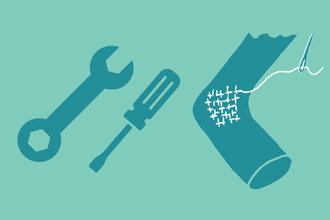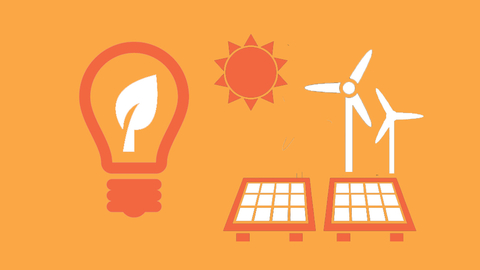
Illustration by Corinne Welch
Change your energy use
There is an urgent need for the UK Government to get the UK off fossil fuels and help UK households and businesses to switch to renewable energy sources.
The Wildlife Trusts advocate and campaign for this change, but in the meantime, there are small (and big) things you can do to reduce your energy use emissions:
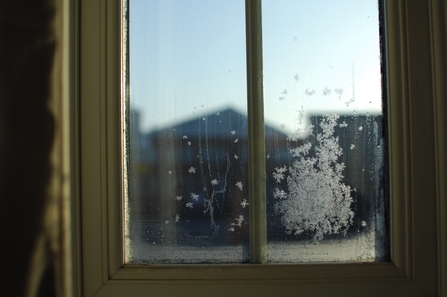
Improve your home's energy efficiency
Our homes leak a lot of heat so it's worth seeing what you can do to be more energy efficient. You can buy draught-proofing strips for windows, add brushes to the bottom of doors and ensure your loft and wall insulation is up to scratch.
You can also reduce drafts from chimneys and floorboards. The Energy Saving Trust guide is a great place to start. However, make sure you also have enough ventilation to ensure good air quality and cooling in summer. Switching to double glazing will also improve your home's energy efficiency.
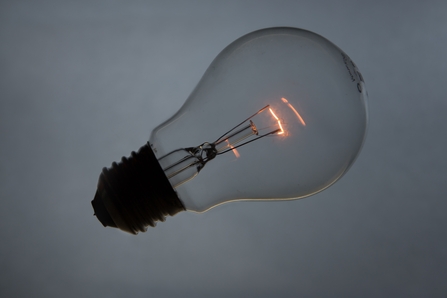
Photo by Robert Wiedemann on Unsplash
Turn the heating down
Helping save energy - and money too! A Uswitch survey found that a household can save up to £80 a year by turning the heating down just one degree. And that means saving the planet around 300kg of carbon dioxide. So make sure your heating is turned down or off when you're not in, and invest in some toasty knitwear over winter.
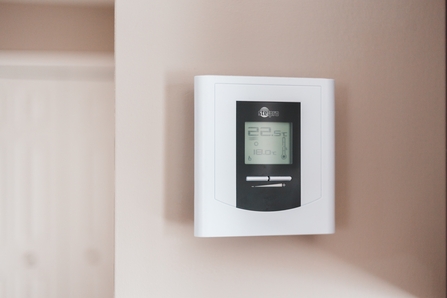
Switch to a renewable energy supplier
Not only is green energy better for the planet, it can also save you money. Green energy is usually generated by wind power and solar. When you move to a green supplier the energy coming into your house will not change. Instead you are enabling your supplier to purchase enough renewable energy to cover what your home uses. Compare different tariffs and look for terms such as 'renewable electricity' and 'renewable gas'.
When it's time to replace your boiler... get a heat pump instead
Most boilers heat our homes with natural gas, which produces carbon dioxide when it is burned. One alternative is using a heat pump. Heat pumps absorb heat from the outside to heat up your home. They work in cold weather and some even provide cooling in the summer! They need electricity to run but their heat output is greater than their electricity input - making them very energy efficient.
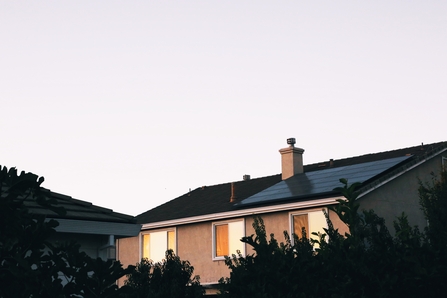
Invest in solar panels
Installing solar panels on your home is a big investment but you’ll see the return. Not only do they generate clean energy, but you can save hundreds on your bills each year and in some cases get paid for any excess energy your panels generate. Solar panels need to be predominantly on south-facing, unshaded roofs with a fair bit of space. Diagonal roofs catch the most rays and, ideally, you want to check your roof is in good condition before you start.
Emissions from buildings need to become zero by 2050
More top tips
Here are some budget friendly, energy and emissions savings tips!
-
Turn off lights when you don’t need them
-
Switch to low energy light bulbs
-
Turn appliances off at the mains and off standby mode
-
Wash clothes at a lower temperature – 30oC is plenty!
-
Only fill the kettle with the water you need

